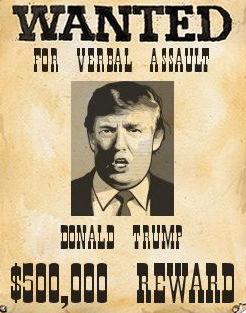Conventional wisdom holds that if you want the right person for the job, you look for someone with the most experience. But it turns out that experience is overrated. A quick look at the worlds of politics, advertising and journalism suggest that Oscar Wilde was right when he said, "Experience is just the name we give our mistakes."
In politics, marketing and media, the ultimate challenge is being heard, standing apart from the crowd. Experts are often hired to craft the right messaging, career professionals who know the landscape. But today's influencers are breaking through by disrupting conventional wisdom and ignoring the experts, leapfrogging past more established players who remain in denial. Because when it comes to communication, it turns out that experience is overrated.
Let's start with politics, where the Republican narrative continues to be dominated by Donald Trump and his sideshow of verbally attacking anyone within shouting distance, especially members of his own party. Though it puzzled pundits at first, Trump's continued popularity has less to do with what he says than what he represents, which is an unapologetic assault on the political system itself.
This theme of Hannibal versus Rome is now the cornerstone of Bernie Sanders' campaign, which continues to gain traction among disaffected Democrats who worry that Hilary may self-destruct or lean too far right in her quest to win the middle. Even though Sanders is already a Senator, he's running his campaign as a populist herald, railing against the establishment. He plays to our shared conviction the political system is bought and paid for by special interests, no longer representative of we, the people. And whether mainstream voters agree with his stance on specific issues or not is irrelevant at the primary stage, because his outsider's outrage brought early momentum to what might easily have been a marginal candidacy.
Back on the Republican side of the aisle, the only standout in the early debate was Carly Fiorina, a deposed CEO with an imperfect track record but a natural gift for crying foul at career politicians (and Hilary Clinton in particular). By giving voice to the skepticism of the average voter, she cut through the platitudes of more experienced candidates whose names you've long since forgotten.
These three candidates couldn't be more different, but they've all tapped into something the political establishment wants to ignore. With congressional approval ratings barely in double digits and gerrymandered districts ensuring tenure for even the most felonious of elected officials, people are yearning for someone who's willing to use their ignorance of the political world as a battering ram against bureaucracy. After all, who needs an experienced politician when you can elect a determined amateur?
Now jump to the world of advertising, where companies often insist that their brand campaigns are created by ad agencies or marketing firm with "category experience." (In other words, banks look for ad agencies who have recently produced bank advertising; car companies look for an agency that created the BMW or Lexus campaign, and so on.) On the surface this seems logical, but it turns out to have the opposite effect from what was intended.
Think about it...most financial services campaigns all look the same, as do ninety percent of all car commercials. And with billions of dollars spent on advertising every year in the U.S. alone, the sheer clutter makes it impossible to stand out if you look like just your competitors. The problem with this sea of sameness isn't that agencies didn't know the category, it's that they knew too much. Their category experience made them complacent, or cautious, or even cynical about their client's appetite for risk. The result are advertising campaigns that look safe, make perfect sense, are entirely acceptable to a committee, and yet as easy to ignore as yesterday's weather.
Truly iconic brands reject category conventions and redefine the competitive playing field. JetBlue isn't really in the airline business, they decided to be in the hospitality business and treat passengers like people instead of cargo. Target rejected the notion that affordable means cheaply designed, and in so doing they turned shopping for everyday things from a checklist to a wish-list. Dos Equis beer famously featured a most interesting man in their advertising, a character twice the age of their target audience who closes the commercials by subversively saying, "I don't always drink beer," something an established beer brand would never do.
In all three examples, these successful brands favor empathy over experience. They cut through the clutter by asking why consumers should care about these brands in the first place, and by applying common sense to fix category problems.
Empathy goes a long way. Just ask the recently retired Jon Stewart, who became the leading source of news for a generation. While experienced newscasters dispassionately read the news, Jon Stewart felt the news and called bullshit on experienced newscasters. Survey after survey showed The Daily Show as the number one source of news, not just entertainment, for anyone under the age of thirty-five. A comedian with no formal news training was perceived as more trustworthy than anyone on the major networks that had invested heavily in experienced reporters like Brian Williams.
(Apparently Pinocchio was also a more trustworthy reporter than Brian Williams, but you get the point.) Jon Stewart was insanely insightful and hugely entertaining, but his real power came from being an outsider without the easy access and longstanding relationships of established journalists, which meant he saw the news the way we all do. An amateur willing to ask the hard questions that experienced journalists are too polite to ask of their friends in politics.
This also explains the rise of news blogs and curated feeds like the one you're reading now. People trust other people more than they trust institutions, which seems fair when you consider how so-called professionals have performed lately. So the next time someone recommends you look for experience, tell them to look somewhere else.
